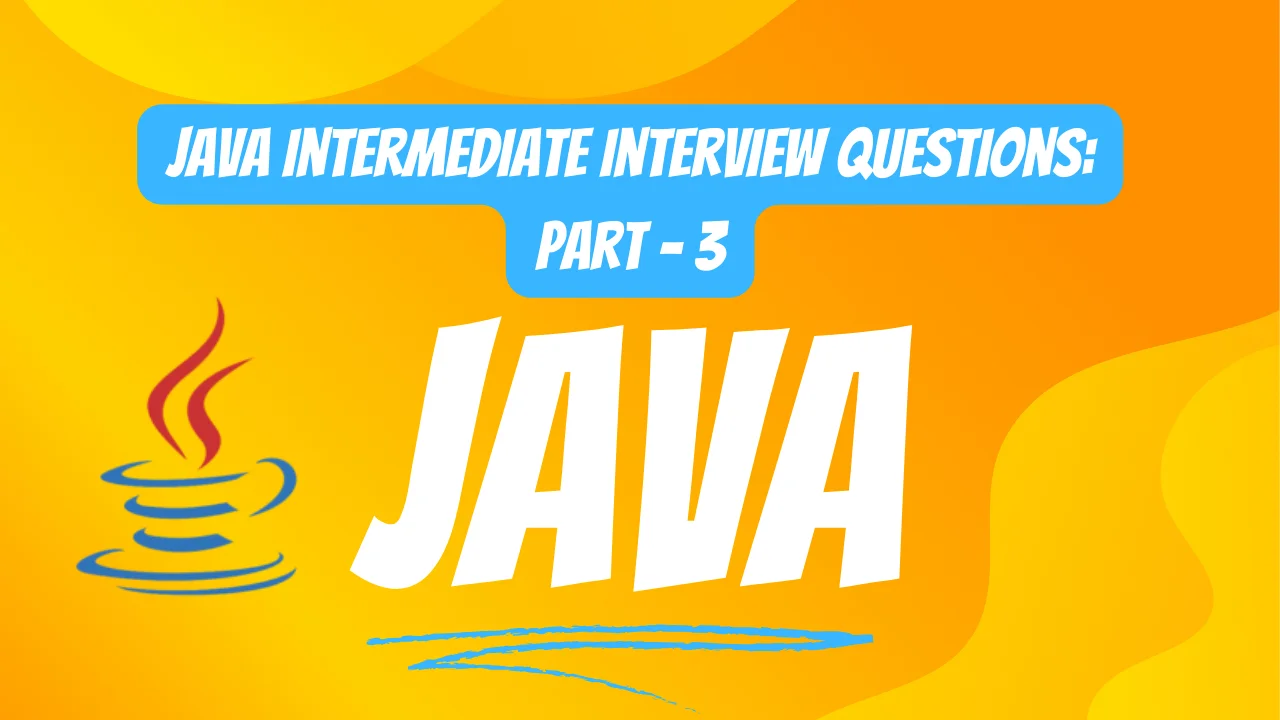Java Intermediate Interview Questions: Part-3

21. Does Java work as a “pass by value” or “pass by reference” phenomenon?
Java uses “pass by value” for all method calls. When objects are passed to methods, the reference to the object is passed by value, not the actual object itself. Changes made to object attributes inside a method affect the original object, but reassigning the reference inside the method does not affect the original reference outside the method.
22. Define the 'IS-A' relationship in object-oriented programming in Java.
The ‘IS-A’ relationship in Java refers to inheritance or the “subclass and superclass” relationship. It signifies that one class is a subtype of another and can be used wherever the parent class is expected. For instance, a subclass “is-a” type of its superclass.
23. When extensive updates are required in the data, which is preferred: String or StringBuffer?
When extensive updates or modifications to the data are needed, StringBuffer is preferred over String in Java. StringBuffer is mutable, allowing efficient modifications to its content, while String is immutable and creating a new String instance for every modification can be inefficient.
24. How can you prevent the serialization of attributes in a Java class?
To prevent the serialization of attributes in a Java class, mark those attributes as transient. Attributes marked as transient are not serialized when the object is serialized.
25. What occurs if the static modifier is omitted from the main method signature in Java?
If the static modifier is omitted from the main method signature in Java, the program will fail to run. The main method must be static to be invoked by the JVM without creating an instance of the class.
26. Analyze the given program, identify its output, and explain the reason behind it.
Without the specific program provided, it’s challenging to determine the output. If you share the code, I can certainly help analyze it, trace the logic, and predict the output based on its execution flow.
27. Can we make the main() thread a daemon thread?
Yes, the main() thread in Java can be set as a daemon thread using the setDaemon() method before starting it. Daemon threads run in the background and are terminated by the JVM when all non-daemon threads complete their execution.
28. What happens if there are multiple main methods within a single class in Java?
If there are multiple main methods within a single class in Java, there won’t be any compilation errors. However, when running the program, the JVM uses the main method with the specific signature: public static void main(String[] args). Other main methods won’t be considered as an entry point for the program.
29. Define Object Cloning and explain how it is achieved in Java.
Object Cloning in Java refers to the process of creating an exact copy of an object. It’s achieved by implementing the Cloneable interface and overriding the clone() method in the class that needs to be cloned. This method creates and returns a copy of the object.
30. Describe how an exception propagates in the code.
When an exception occurs in Java, it’s thrown by the method that encountered the error. If that method doesn’t handle the exception, it’s propagated up the call stack until it finds an appropriate catch block or reaches the top-level/default exception handler (catch block or finally block) in the program or thread.
In conclusion,
mastering Java is a crucial step for freshers looking to excel in the competitive IT landscape. Our compilation of Java interview questions for freshers is designed to be a comprehensive guide, helping you prepare with confidence. Whether you’re just starting your career or aiming for new opportunities, a solid understanding of Java is a valuable asset.
Ready to take your Java skills to the next level? Explore our top-notch Java Training in Chennai. Our expert instructors and hands-on approach ensure that you not only ace interviews but also thrive in real-world scenarios. To kickstart your journey to Java excellence, contact us at +91 9159-333-334. Secure your future today with the best Java Training in Chennai. Don’t miss out on the chance to propel your career forward
Java Intermediate Interview Questions: Part- 1





